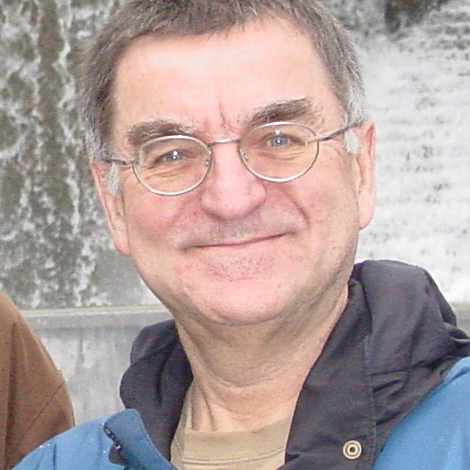What can we do right now with or without leadership?
If we agree the community economy holds great promise for Canada’s future, what else might be done to make it more real and visible?
Folks joining a teleconference earlier this week named what they see a big de-energizer: people working in silos.
 “We aren’t leveraging the social capital we have to really create change,” said David LePage, Founder of Accelerating Social Impact, one of B.C.’s first community contribution companies, David is one of four initiators of a proposed series of national dialogues and media-making intended to energize Canada’s community economy.
“We aren’t leveraging the social capital we have to really create change,” said David LePage, Founder of Accelerating Social Impact, one of B.C.’s first community contribution companies, David is one of four initiators of a proposed series of national dialogues and media-making intended to energize Canada’s community economy.
The teleconference earlier this week included these initiators and a small group of people bringing experience in work such as placemaking, organizational development, social enterprise and community economic development.
These folks and so many others are all circling the same issues, David said, and yet there’s this disheartening lack of connection.
A contributing factor is likely people getting caught up in their own “tribes”.
While there’s certainly a place for the tribe, what’s being missed in not being intentional about finding one’s place in the larger “us”?
As community builder Leslie Wright says, “It is a myth, a profound myth, that I can live my life unaffected by the choices other people make and certainly my own choices.
“There isn’t this separate universe for us to live in; we’re all interconnected and so how do we bring people back to that.”
The opportunity in this community economy context is how do we invite people to walk together as part of that larger us. You don’t have to abandon your identity in the tribe. You don’t have to abandon your identity as an important, individual person. But how will you also take on that identity as a member of the larger us and be accountable to that?
Though there is no one answer, no brass bell to ring when we get to the end, it’s hoped that this series of national dialogues and media-making can make a meaningful contribution to enabling more of that connection, the breaking down of those silos and “walking together.”
The question now is how to shape this effort in such a way that it actually does do that.
One proposal is that we make a guiding question for this dialogue and media-making series, “What can we do right now, with or without leadership?”
“Figuring out how to do stuff seems to be the real urge,” Axiom News founder and CEO Peter Pula says.
Or, as another teleconference participant put it, “How do we learn by doing while dialoguing?”
What about you? Does this call resonate: What can we do right now with or without leadership?
This article was originally posted by www.axiomnews.com on February 5, 2015 and appears here with permission.
Michelle Strutzenberger brings more than 10 years of experience in writing, social media, curation and digital distribution. Subject areas of interest include creating abundant or deep communities, social-mission business, education that strengthens kids’ sense of hope and possibility and journalism that helps society create its preferred future. She is currently supporting the development of Axiom News podcasts. Contact Michelle at michelle at axiomnews.com.





 SEE Change Magazine
SEE Change Magazine
 As announced in the 2013
As announced in the 2013  The last year was also an occasion to participate in
The last year was also an occasion to participate in  Our participation in the
Our participation in the 
 Through a focus on women’s economic independence, Lis Suarez is working toward poverty reduction among both local and immigrant women in Canada. The
Through a focus on women’s economic independence, Lis Suarez is working toward poverty reduction among both local and immigrant women in Canada. The 
 access for both, including those that haven’t been able to participate in the past due to barriers. This is not a lowered role for men – it is a partnership. In patriarchal societies, men are the ones that need to be convinced that equal access is a positive thing. They are a vital part of inequality reductions.
access for both, including those that haven’t been able to participate in the past due to barriers. This is not a lowered role for men – it is a partnership. In patriarchal societies, men are the ones that need to be convinced that equal access is a positive thing. They are a vital part of inequality reductions.
 The
The  Building a 21st century economy is not an easy endeavour by any means. That said, we’re at an interesting point in history where the decisions we make today, will have long standing effects on the generations to come.
Building a 21st century economy is not an easy endeavour by any means. That said, we’re at an interesting point in history where the decisions we make today, will have long standing effects on the generations to come. We can circumvent these barriers however, by building alternative economies.
We can circumvent these barriers however, by building alternative economies. 
 What are some key elements of “new economies”?
What are some key elements of “new economies”? Victoria Wee is completing her bachelor’s degree in Computer Science at Stanford University. As the Youth Engagement Director of We Canada, she led the organization of a national mobilization tour to consult Canadians across the country in preparation for the UN Conference on Sustainable Development (UNCSD, Rio+20). On the tour, “Dialogues and Action for Earth Summit 2012,” Victoria hosted presentations and workshops at schools universities in sixteen cities. The results of these consultations were compiled into a report submitted as stakeholder input into UNCSD, and published in a paper co-authored in Earth Common Journal.
Victoria Wee is completing her bachelor’s degree in Computer Science at Stanford University. As the Youth Engagement Director of We Canada, she led the organization of a national mobilization tour to consult Canadians across the country in preparation for the UN Conference on Sustainable Development (UNCSD, Rio+20). On the tour, “Dialogues and Action for Earth Summit 2012,” Victoria hosted presentations and workshops at schools universities in sixteen cities. The results of these consultations were compiled into a report submitted as stakeholder input into UNCSD, and published in a paper co-authored in Earth Common Journal.  Mike McGinn knows exactly what real wealth means for him, and it’s simple: health, and friends. These have been fundamental to everything he has done, from being a community member volunteer, to a lawyer, a non-profit founder, and the Mayor of Seattle. Mike has found the motivation for his ongoing work in his children, and believes that we are the first generation to see the effects of global warming, and we are the last generation that can do anything about it – “I want to tell my children we did everything we could.”
Mike McGinn knows exactly what real wealth means for him, and it’s simple: health, and friends. These have been fundamental to everything he has done, from being a community member volunteer, to a lawyer, a non-profit founder, and the Mayor of Seattle. Mike has found the motivation for his ongoing work in his children, and believes that we are the first generation to see the effects of global warming, and we are the last generation that can do anything about it – “I want to tell my children we did everything we could.”





 Marty Donkervoort has been honoured by the
Marty Donkervoort has been honoured by the